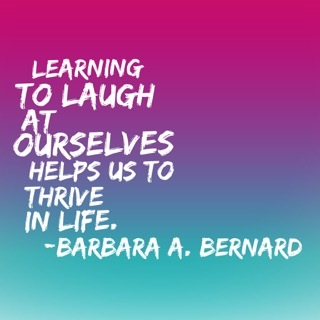In a break room recently, I overheard someone comment, "Well, we CAN'T miss you in that shirt." I hadn't heard the earlier conversation, but as an observer, I noted that everyone else in the room was laughing while a pained look crossed the face of the person who was wearing the shirt. Perhaps this incident calls to mind a time when someone directed a comment your way and everyone else around you laughed but your heart sank. For days afterward, you may have thought about what that person said, causing you to feel the pain again. That's what sarcasm does.
My ongoing exploration into our use of language has made it clear to me that sarcasm is a socially acceptable way we hurt each other. Although it's often disguised as humor, sarcasm has behind it the intention to belittle, ridicule, or mock another person. It's destructive to relationships. The sarcastic person's comments typically originate from a feeling of insecurity, a need to express judgment, or a wish to alienate the other person. The one on the receiving end is made to feel different, bad, inferior, or unworthy.
Most of the time, words spoken sarcastically are intended to mean the exact opposite of what is said. It all comes down to how you say it. Take the words, "That is just what I need," and read the statement out loud, as if someone just brought you the perfect thing you were wanting. Then read it as if that person brought you something you deem useless. You can hear the difference in your tone of voice. Now imagine someone saying that to you.
In contrast to sarcasm, humor strengthens relationships because it doesn't hurt anyone. It is inviting, builds trust, and can lead to genuine laughter. Researchers have found that laughter contributes to our sense of well-being, helps us manage stress, and restores balance. It unites people and integrates the brain. Even the most challenging situations allow for opportunities to laugh.
Learning to laugh at ourselves is key to living in discovery. When our family was caring for my terminally ill parents, we frequently found we were laughing at ourselves in the situation, partly as a way to release some of our grief. One time, we waited too long to move my mother into bed after giving her sleeping medication, and the weight of her body ended up pinning three of us under her on the bed. While she snored, the rest of us were laughing uproariously as we tried to scoot out from beneath her body.
Cultivating the ability to be humorous and laugh helps us thrive in life. At the same time, it takes courage to reflect and be honest about your own use of language and to notice whether the intent behind what you say is hurtful or kind. In some families and organizations, sarcasm is the norm, so making a deliberate effort to eliminate it from the words you speak can take vigilance and practice. As soon as you understand the difference between humor and sarcasm, and choose to be compassionate, you'll be experiencing another rich facet of living in discovery.

